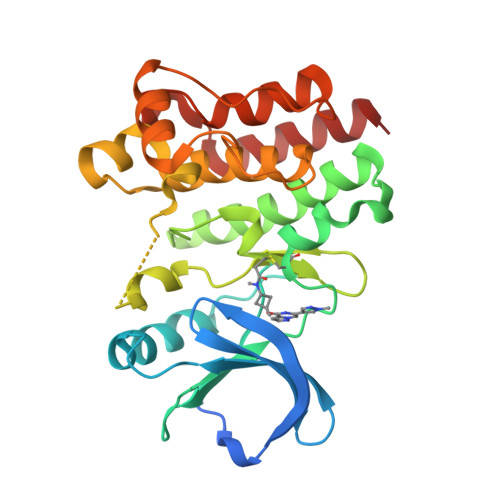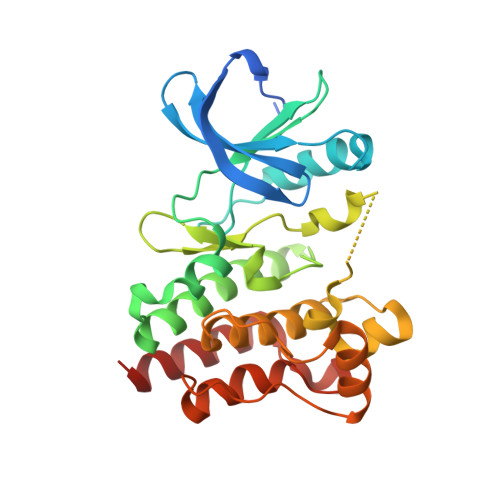Discovery and Preclinical Characterization of BIIB129, a Covalent, Selective, and Brain-Penetrant BTK Inhibitor for the Treatment of Multiple Sclerosis.
Himmelbauer, M.K., Bajrami, B., Basile, R., Capacci, A., Chen, T., Choi, C.K., Gilfillan, R., Gonzalez-Lopez de Turiso, F., Gu, C., Hoemberger, M., Johnson, D.S., Jones, J.H., Kadakia, E., Kirkland, M., Lin, E.Y., Liu, Y., Ma, B., Magee, T., Mantena, S., Marx, I.E., Metrick, C.M., Mingueneau, M., Murugan, P., Muste, C.A., Nadella, P., Nevalainen, M., Parker Harp, C.R., Pattaropong, V., Pietrasiewicz, A., Prince, R.J., Purgett, T.J., Santoro, J.C., Schulz, J., Sciabola, S., Tang, H., Vandeveer, H.G., Wang, T., Yousaf, Z., Helal, C.J., Hopkins, B.T.(2024) J Med Chem 67: 8122-8140
- PubMed: 38712838
- DOI: https://doi.org/10.1021/acs.jmedchem.4c00220
- Primary Citation of Related Structures:
8TU3, 8TU4, 8TU5 - PubMed Abstract:
Multiple sclerosis (MS) is a chronic disease with an underlying pathology characterized by inflammation-driven neuronal loss, axonal injury, and demyelination. Bruton's tyrosine kinase (BTK), a nonreceptor tyrosine kinase and member of the TEC family of kinases, is involved in the regulation, migration, and functional activation of B cells and myeloid cells in the periphery and the central nervous system (CNS), cell types which are deemed central to the pathology contributing to disease progression in MS patients. Herein, we describe the discovery of BIIB129 ( 25 ), a structurally distinct and brain-penetrant targeted covalent inhibitor (TCI) of BTK with an unprecedented binding mode responsible for its high kinome selectivity. BIIB129 ( 25 ) demonstrated efficacy in disease-relevant preclinical in vivo models of B cell proliferation in the CNS, exhibits a favorable safety profile suitable for clinical development as an immunomodulating therapy for MS, and has a low projected total human daily dose.
Organizational Affiliation:
Biogen Research and Development, 225 Binney Street, Cambridge, Massachusetts 02142, United States.

















